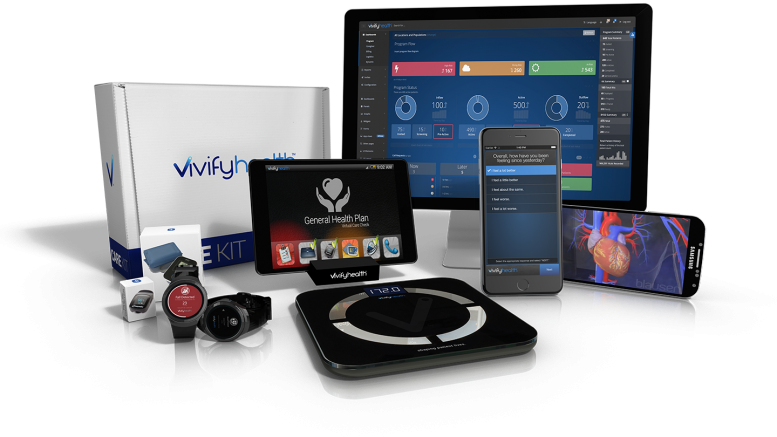Pediatric hospital’s “Hearts at Home” program uses Vivify to break through income and language barriers to pediatric patient home monitoring and support
Children’s of Alabama, one of the largest pediatric healthcare facilities in the United States, is equipping caregivers and parents of infants born with heart defects with a completely managed remote care and monitoring kit from Vivify Health, extending the reach of the hospital into the infant’s home.
The digital kit includes a tablet and unlimited data plan that enables parents to track and report their baby’s weight, pulse and oxygen saturation, and to have immediate, reliable communication with caregivers, even if English is not their first language. In turn, caregivers can track and monitor infants with congenital heart disease who are enrolled in Children’s of Alabama’s “Hearts at Home” program during their most vulnerable stages of recovery, post-surgery, and quickly intervene when conditions change.
“We are very excited about the improvements we expect to achieve with the Vivify solution, especially faster and easier communication with parents and heightened ability of caregivers to follow vital sign trends to ward off clinical deterioration in the precious infants under our care,” stated Sarah Torsch Blair, CRNP, PNP-AC and Hearts at Home Coordinator.
Keeping babies with a complex condition on the right care path
The Hearts at Home program provides home monitoring and support for babies with congenital heart disease. Most of these babies are born with a single ventricle (pumping chamber) and will undergo three major open heart surgeries by the time they are two to three years old. The first and most complex surgery occurs when they are just one to two weeks old, with the second surgery when the baby is four to 12 months old. The months spent at home after the first and before the second surgery are the most critical–and understandably the most overwhelming for the parents. (For more insight into this vulnerable time, watch this informative video.)
“The Hearts at Home program has been a source of non-stop caring and support for over 40 infants and their families since inception. We chose the Vivify solution to help this successful program become even more effective by extending many of the capabilities of an intensive care unit into the infant’s home,” stated Dr. Leslie Rhodes, Assistant Professor and Pediatric Cardiac Intensivist.
Vivify replaces paper-based and sometimes spotty parental reporting of the baby’s biometric data and growth at home with an electronic and multi-lingual solution. In addition to easy uploading of the baby’s daily vital signs, the Vivify solution includes video conferencing and a complete library of how-to tutorials regarding medication and nutrition and other elements of caring for babies with a complex heart condition. Also included in the Vivify remote care platform is a data plan which is not limited or dependent on the parent’s income. As long as parents have the tablet, they can get in touch with their baby’s care team.
A peace-of-mind tool for care providers
After discharge, the Hearts at Home team calls the parents a minimum of one to two times a week to check in and see if they have any questions or concerns. The entire cardiac team at Children’s hospital is involved with and invested in these children, and works closely with the pediatricians and cardiologists to make sure the babies stay healthy and continue to grow. The Vivify solutions provide a number of tools for these dedicated professionals to carry out their mission, including:
- Web Based Monitoring
- Alerts and Triage
- Daily Health Scores
- Chart Notes and History
- Medication Management
- Virtual Visits
“Vivify couldn’t be prouder to be associated with a program that’s advancing post-pediatric surgery care to such new levels,” said Eric Rock, CEO of Vivify Health. “We look forward to working with Children’s of Alabama and the Hearts at Home program to enable nothing less than full recovery for some of the youngest and most complex populations among us.”

